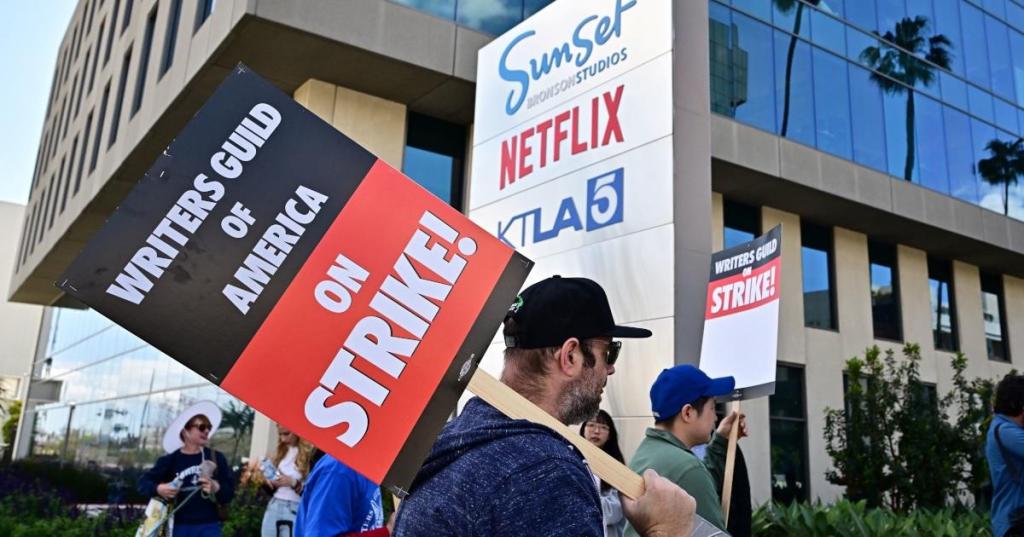After more than 100 days on the picket line, the Writers Guild of America (WGA) strike could soon be ending. On Wednesday, the WGA met face-to-face with the Alliance of Motion Picture and Television Producers (AMPTP) and are now set to meet again Thursday with hopes of finalizing a deal, according to CNBC anchor David Faber.
Although details about Wednesday’s meeting – which reportedly included Netflix’s Ted Sarandos, Disney’s Bob Iger, Universal’s Donna Langley, and Warner Bros Discovery’s David Zaslav, as well as AMPTP president Carol Lombardini and WGA chief negotiator Ellen Stutzman, according to Deadline – are unclear, one insider said the meeting was “very encouraging.” Another source indicated, per Deadline, “incredible progress” was made, with another well-positioned source stating, “This is what happens when principals get serious. Things start moving.” Variety reported that “the WGA representatives spent the session mostly listening to new proposals put forward” by the AMPTP, and “Chris Keyser, the co-chair of the WGA negotiating committee, also spoke at length about what the union needs in order to get a deal done.”
Videos by PopCulture.com
In a rare joint statement Wednesday evening, the WGA and the AMPTP confirmed they “met for bargaining today and will meet again tomorrow.” It is believed that at least some, if not all, of the studio presidents will be part of Thursday’s meeting. According to Variety, at Thursday’s meeting, the WGA is expected to return with some responses to the latest offers.

Wednesday’s meeting marked a positive sign amid the ongoing strikes after negotiations between the WGA and the AMPTP reached a standstill in late August following a separate meeting between top WGA leaders and top studio executives. The current WGA strike began on May 2 after the two sides failed to reach an agreement before their contract expired. The WGA, which represents more than 11,000 Hollywood TV and movie writers, is fighting for higher compensation, new rules that would require studios to staff TV shows with a certain number of writers for a certain period, and compensation throughout the process of preproduction, production and postproduction, among other demands.
The strike has now lasted more than 140 days, with the Screen Actors Guild – American Federation of Television and Radio Artists (SAG-AFTRA) also beginning a strike on July 4. Among their list of demands, SAG-AFTRA is asking for “minimum earnings to simply keep up with inflation,” protection of performers’ “images and performances to prevent replacement of human performances by artificial intelligence technology,” “compensation to reflect the value we bring to the streamers who profit from our labor,” and “support from our employers to keep our health and retirement funds sustainable.”
Most Viewed
-

SYDNEY, AUSTRALIA – FEBRUARY 26: Drag Icon Maxi Shield poses against the cycle way construction site (along Mardi Gras parade route on Oxford ) on February 26, 2025 in Sydney, Australia. The Sydney Gay and Lesbian Mardi Gras parade will return to Oxford Street for the 47th time. The parade began in 1978 as a march to commemorate the 1969 Stonewall Riots in New York and has been held every year since to promote awareness of gay, lesbian, bisexual and transgendered issues. (Photo by Don Arnold/WireImage)







